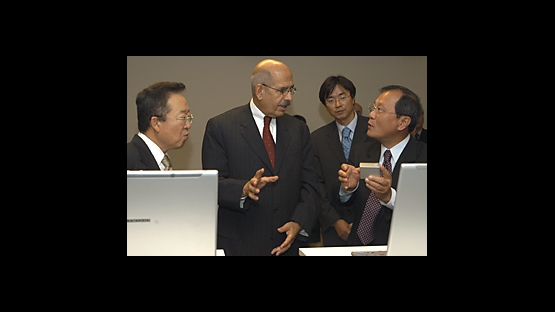The Republic of Korea opened an exhibition at the IAEA General Conference highlighting the country’s technical cooperation with the IAEA. IAEA Director General Mohamed ElBaradei and other Conference attendees were briefed on the theme, "New Horizons for Nuclear Security and Emergency Preparedness" with particular emphasis on Korea´s newly developed system for radiation and environmental monitoring.
Seen as an exciting development is the Korean-developed Eco Friendly Radiation Detector (EFRD). The EFRD is a special device for monitoring environmental radiation which can distinguish between naturally occurring radiation and man-made radioactivity. With this device a nuclear emergency at a power plant or other nuclear facility in Korea or overseas can be quickly detected, analysed and reported to Korea's Emergency Operation Centre at the Ministry of Science and Technology. Korean citizens can also access this information through the Internet thereby gaining confidence and assurance in the country´s monitoring and response capabilities.
With 40% of the electric power consumed in Korea supplied by nuclear power plants, nuclear power is a core factor in ensuring a stable energy supply. To this end, the Korean government is developing advanced new nuclear systems.
Korean policy specialists are involved in the IAEA’s INPRO Project (International Project on Innovative Nuclear Reactors and Fuel Cycles) and a case study is being carried out on direct use of spent fuel in reactors. Korea is also a founding member of the Generation IV International Forum. In co-operation with the IAEA and others, Korea is developing a System-Integrated Modular Atomic Advanced Reactor.
Since 2002, Korea has supported the IAEA in developing a Global Nuclear Safety Network and is currently operating a nuclear safety information sharing system, forming a nuclear safety network in the Asian region.
The Korean government passed a new law, in 2003, the Act of Physical Protection of Nuclear Facilities and Radiological Emergency Preparedness, aimed at enhancing security and emergency preparedness in nuclear facilities.


